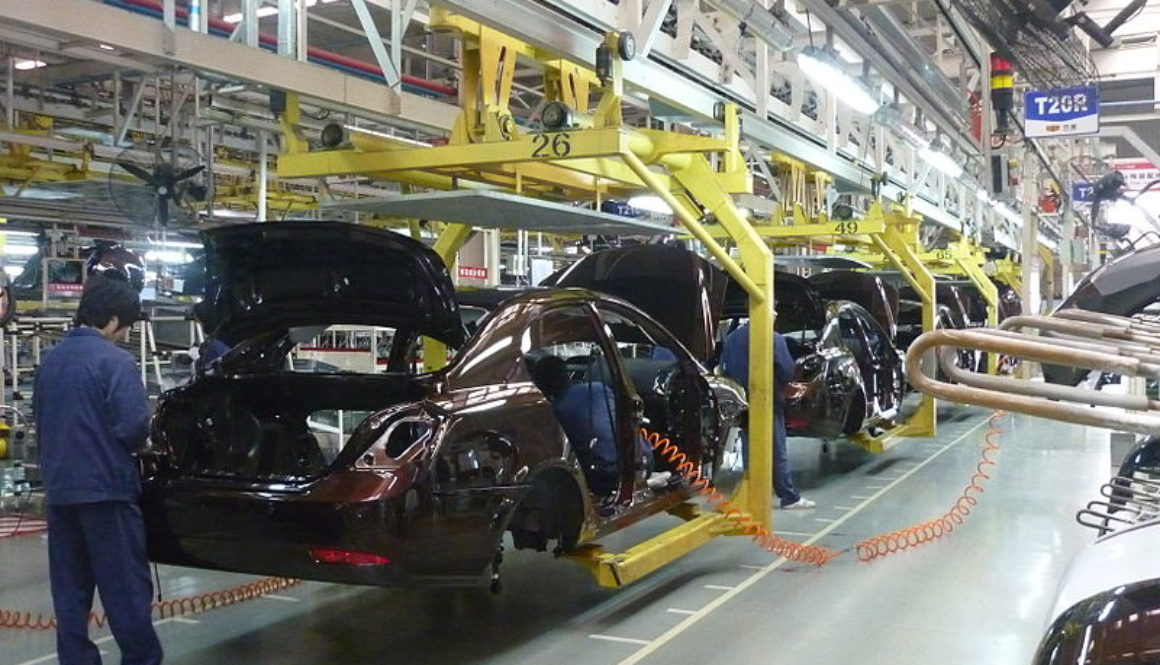Mexican auto parts exports are higher in value than light vehicles sold abroad
Out of every $10 of Mexican auto parts sold internationally $5 dollars of this figure are sent to the US.
Recent figures demonstrate that the export of Mexican auto parts to the United States is 1.3 times the value of overseas shipments of light vehicles and 5 times greater than the value of the inflow of trucks and tractors. This is according to data generated by the country’s industry chamber, the National Auto Parts Industry (INA).
The INA revealed that in 2019 exports of parts and spare parts for vehicles manufactured in Mexico and exported to the United States reached a value of $70 billion, while during the same period shipments of light vehicles, truck, and tractors sent to the United States reported revenues of US $54 billion and US $14 billion, and US $164 million respectively.
Mexico is home to operations of auto parts manufacturers such as Vitro (a Mexican national company), Nemak, Condumex, Metalsa, and Rassini. Other international firms that have established manufacturing facilities in Mexico include companies such as Continental, Delphi, Bosch, and Yazaki.
Globally, Mexico currently has 13 active free trade agreements that govern trade relations with 52 countries. These arrangements have enabled the country to export 3.3 million cars per year and US $81 billion auto parts to different nations on an annual basis.
Specialists explained that auto parts manufacturing in Mexico has become relevant because it is a country with competitively priced labor. This enables quality higher-value vehicles to be manufactured for both businesses and consumers.
“Mexico in recent years excelled in the production of automobiles, but especially auto parts. The United States saw this clearly and that is why it focused the issue of Mexican auto parts exports during the negotiations of the new USMCA (United States-Mexico-Canada Free Trade Agreement),” Rocío Mejía, Global Trade and Indirect Tax Leader of consultancy EY Latin America North observed during a recent presentation on the subject.
Mexican auto parts exports are priced advantageously in the international marketplace because the country is among the nations with the lowest costs for manufacturing between emerging markets, costing $3.73 per hour. Countries such as China, Turkey, and Morocco are at $4.79, $4.32, and $4.21, respectively per direct labor hour.
Now, with the advent of the COVID-19 pandemic and the recent implementation of the USMCA, the opportunities for the attraction of greater foreign direct investment attraction in the sector that drives Mexican auto parts exports in Mexico have increased This is because manufacturers are seeking to reduce their costs and Mexico offers them the opportunity to do so.
“The coronavirus health crisis has added an additional variable to the trends that are governing supply chain development. Additionally, we have data that indicates that in 2019 about 19 percent of executives in the United States was rethinking the option of moving their supply chains from China to the region (North America). This is because of the trade war between the US and the Asian nation. Because of the coronavirus manufacturers seek to have more resilient supply chains,” asserts Carlos Zegarra, a leading partner of Management Consulting at PwC Mexico.
While Albrecht Ysenburg, KPMG’s leading automotive industry consultant in Mexico, has observed that the global pandemic will now motivate industry to focus on a more operational and survivable approach to their supply chains. This makes an increase of Mexican auto parts exports almost a certainty.
“Companies must develop independent regional strategies for both customers and markets. Mexican companies will need to position themselves to meet the different needs of the buyers of their products,” he said.
Mexico has 26 development centers in the automotive industry, which employ 15 thousand 680. Global companies such as Ford continue to expand their footprint for this type of activity.
European and Asian, customer potential
Faced with the new regional content rules that automotive manufacturers must comply with under the new USMCA in order to qualify for duty-free treatment, European and Asian vehicle assemblers are the main potential customers for North America produced auto parts.
Information from the American Automobile Labeling Act reveals that Ford, General Motors, and Fiat Chrysler Automobiles (FCA) meet a regional content value of 81 percent on average, far exceeding the 75 percent called for under the new trade agreement between the three North American countries.
However, Asian firms like Nissan, Toyota, Mazda, Honda, and KIA have a much lower average of North American content at 67 percent. Among these brands, the Korean car manufacturer, KIA, is the least compliant with an average of between 49 and 50 percent.
In the case of European producers such as Audi, Volkswagen, BMW, and Mercedes Benz, the regional content average is 49 percent. Germany’s BMW’s compliance is only at 35 percent.




